The Last Confession of Thomas Hawkins - [3]
I turned down Russell Street, leaving the piazza and the market behind me. I had asked Kitty to marry me a hundred times, and she had refused me a hundred times in return – with good reason. A few months ago she had inherited a fortune from her guardian, Samuel Fleet, including the house and print shop where we now lived together. If she married me, the business and all her fortune would fall under my control. How could she trust me not to gamble away her inheritance? She had never admitted her concerns to me, but I could see the doubt in those sharp green eyes of hers, whenever I asked for her hand. Given the choice between being rich or respectable she had chosen to keep her money and let her reputation fend for itself. I couldn’t blame her for it. I’m sure I wouldn’t marry me either.
A blurred shape leaped down from a wall into my path, startling me from my thoughts. A cat, out hunting. It pounced hard into a pile of stinking rubbish a few feet ahead. There was a scuffle, and then a long, vicious squeal. A moment later the cat trotted past, triumphant, a huge rat dangling in its mouth. I skirted the rubbish heap with an anxious eye. I had almost walked straight through it.
Russell Street is like a young country girl, fresh arrived on the London coach. It begins with good intentions – smart coffeehouses, handsome private homes. Then after a short distance it takes on a pragmatic but profitable air – an apothecary’s, a grocer’s store. After that comes a fast, sordid descent – a grimy gin shop, a gaming house, a brothel with broken windows and a rotting roof. And opposite the brothel, a bookseller’s and print shop, selling filth and sedition under the counter. A sign hangs above the door – a pistol tilted at a lewd angle. And underneath the pistol: Proprietor, S. Fleet. No longer. S. Fleet was dead – burning in hell or causing havoc in heaven, who could guess? This was Kitty Sparks’ place now.
The Cocked Pistol is set back from the street, as if ready to slink away at the first glimpse of trouble. It is also narrower than the houses upon either side, which gives it the appearance of being squeezed slowly to death by its neighbours. I paused at the dark-green door, preparing myself for Kitty’s wrath. It could be a fearsome thing to behold, and rather thrilling for us both. Her face would flush and she would bunch her fists tight into her gown, her chest heaving. She would call me a selfish dog, a scoundrel, an inconstant son of a whore. At some point the questions and accusations would falter and she would grab me or I would grab her and we would fling ourselves up the stairs. She had the most bewitching way of slipping her fingers beneath the band of my breeches and pulling me into bed, while staring deep into my eyes. A simple thing, but my God it was worth all the shouting.
‘Thief!’
A muffled scream, close by. I gave a start, and peered up and down the dark street. There was no one there; not that I could see. The street fell silent, as if holding its breath. I felt the hair prickle along my neck. Was someone hiding in the shadows? I reached for my sword, drawing it smoothly from my side.
Someone shouted again, a sharp cry of fear. ‘Help! Help! Oh, Lord, spare us!’
A young woman’s voice – a maidservant, I thought. She was calling from the house I’d just passed – Joseph Burden’s home. The very last place I would expect a commotion. There were churches that were less quiet and respectable. I ran back to the door and thumped my fist against it.
‘Holla! Mr Burden! Is all well?’
No one replied. I could hear shouts and screams within, and footsteps on the stairs. Burden bellowing angrily for more light. The girl was still weeping. ‘I saw him! I swear I saw him!’
A housebreaker, it must be. January was their favourite month – long, dark nights and no one out on the frozen streets to see them. Except men like me. I pounded harder on the door. ‘Mr Burden!’
The bolts slammed free. Burden’s apprentice, Ned Weaver, stood in the doorway, clutching a hammer in his fist. His broad shoulders blocked the view into the hallway. He ducked his head to save it from catching upon the frame.
‘Thief?’ I whispered.
‘Aye.’ He gestured with his hammer, back over his shoulder. Still inside.
‘Is someone hurt? I heard screams…’
He shook his head. ‘It’s just Alice. Gave her a fright.’ An odd, rather sour look crossed his face. ‘He woke her up. The thief. He was standing over the bed.’
I took a step towards the piazza to fetch help.
‘Wait!’ Ned seized my arm and pulled me back to the front step, almost lifting me from my feet. It felt as if I were held in the jaws of some great hound. Burden was a master carpenter and worked his apprentice hard. ‘We have him trapped. Stay here on guard, sir, I beg you. Don’t let the devil pass.’
He thundered back up the stairs. Trouble, I thought, rubbing my arm. Well – I had a talent for it. I squared my shoulders and gripped my blade a little tighter, wishing I had not drunk quite so much punch. Or indeed been left with just the one shoe. I could still hear sobbing in an upper room, and boots thumping back and forth as the men searched the house – but nobody came back to the door. The more I waited, alone in the dark, the more puzzled I became. Why had the thief picked Joseph Burden’s home, of all the houses in London? There were finer places to rob even on this street, and Burden always kept his windows and doors firmly locked and bolted at night. He was known and mocked in the neighbourhood for securing his house as early as six o’clock in winter.
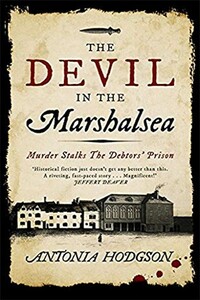
WINNER OF THE CWA HISTORICAL DAGGER AWARD 2014.Longlisted for the John Creasey Dagger Award for best debut crime novel of 2014.London, 1727 – and Tom Hawkins is about to fall from his heaven of card games, brothels, and coffeehouses to the hell of a debtors' prison. The Marshalsea is a savage world of its own, with simple rules: those with family or friends who can lend them a little money may survive in relative comfort. Those with none will starve in squalor and disease. And those who try to escape will suffer a gruesome fate at the hands of the gaol's rutheless governor and his cronies.The trouble is, Tom Hawkins has never been good at following rules – even simple ones.
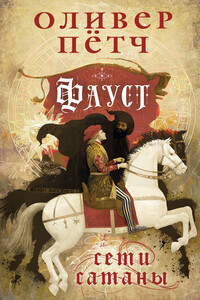
Легенды о докторе Фаусте, маге и чернокнижнике, ходили по Европе с конца XV века. Их увековечила бессмертная драма Гёте, в которой главный герой ради достижения своей мечты продает душу сатане. Однако Фауст – не литературная выдумка, а совершенно реальная личность. Именно так о нем рассказывает Оливер Пётч – блестящий рассказчик и замечательный исследователь немецкой старины. Как о человеке, искавшем свое истинное предназначение – и повстречавшем на этом пути Зло… 1486 год. Книтлинген, тихий городок в земле Баден-Вюртемберг, оставался таким до того дня, когда в него приехал маг и астролог Тонио дель Моравиа и внезапно стали пропадать дети.
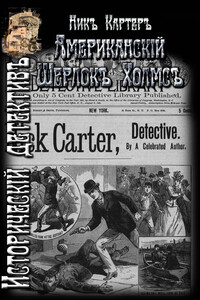
Ник Картер (настоящее имя — Джон Р. Корнелл) — создатель популярнейшего одноименного героя Ника Картера, который практически не знаком российскому читателю. Ник, потрясающий по активности и изобретательности герой, стал любимцем миллионов читателей не только в США, но и во всем мире. Многомиллионные тиражи и более 1200 созданных, и победно шествующих по западным страницам комиксов, лучшее тому подтверждение. Если вы любите динамичный, приключенческий детективный жанр — Ник Картер для вас.Спойлер:Нику Картеру была суждена самая долгая жизнь среди всех вымышленных частных сыщиков.
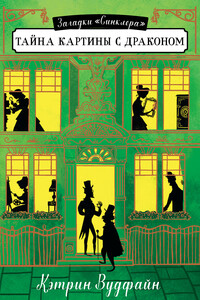
Удивитесь: из королевской коллекции исчезла картина «Зелёный дракон»! Трепещите: в краже обвиняют самую талантливую студентку Института изобразительных искусств Лондона. Восхищайтесь: отважные и предприимчивые подруги Софи и Лил вступятся за честь девушки и разгадают тайну картины с драконом. Погрузитесь в скандальный мир картинных галерей, лондонской богемы и закрытых джентльменских клубов XX века!
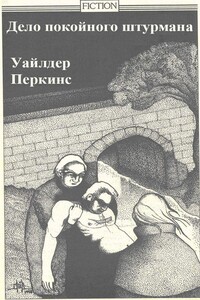
Флотский офицер Бартоломей Хоар, вследствие ранения лишенный возможности нести корабельную службу, исполняет обязанности адмиральского порученца в военно-морской базе Портсмут. Случайное происшествие заставило его заняться расследованием загадочного убийства... Этот рассказ является приквелом к серии исторических детективов Уайлдера Перкинса. .

Безжалостный король Август Сильный заточил в своем замке юного аптекаря Иоганна Фридриха Бёттгера. Тот должен открыть тайну получения золота из свинца, а неуспех будет стоить ему жизни. Бёттгер не сумел осуществить мечту алхимиков, зато получил рецепт фарфора — экзотической и загадочной субстанции, называемой «белым золотом». И ради того чтобы его раздобыть многие современники готовы лгать, красть и даже убивать…

Автор выстроил все предсказания, полученные Николаем II на протяжении жизни в хронологическом порядке – и открылась удивительная картина, позволяющая совершенно по-новому взглянуть на его жизнь, судьбу и на историю его царствования. Он знал свою судь д своей гибели (и гибели своей семьи). Он пытался переломить решительным образом судьбу в марте 1905 года, но не смог. Впрочем, он действовали по девизу: делай что должно и будь что будет. Впервые эти материалы были опубликованы мной в 2006 г.